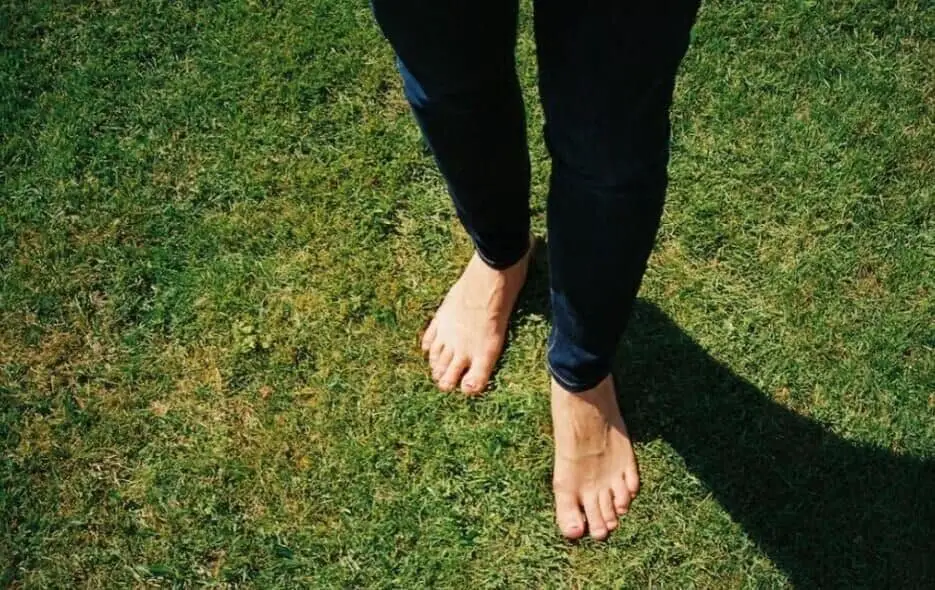Walking exercises the body; walking in nature nourishes the body, mind, and soul. It’s hard to explain, but something about being in nature calms and relieves both physical and mental stress. And that’s the key to being more resilient to the overwhelming pressures of everyday life.
To the uninitiated, a walk in nature doesn’t seem like much.
Still, many studies have shown that spending time in the great outdoors can boost creativity and increase positive affect and energy. One systematic review published in the Journal of Clinical Medicine concludes that nature walk promotes physical health and mental well-being.
Stress-inducing situations are all around us every day and will eventually weigh us down if we are not proactive in reducing stress. If you are looking for an inclusive and cost-effective way to improve your overall well-being and thrive in today’s world, engaging in nature walks more often is the way to go.
Not too sure about adding nature walks to your already busy schedule? Perhaps you’ll have a change of heart when you learn the important benefits of spending more time in the great outdoors, so keep reading.
Why You Should Walk in Nature
In a highly competitive world, where the pressure to perform is high, why would anyone want to “waste time” feeling the gentle breeze on their skin or watching a butterfly float between flowers? Why should you spend time in nature when there are more important personal goals to chase?
Here’s the thing.
Many people wear “busy” as a badge of honor, mistaking constant busyness for productivity. But slowing down helps you become present, focused, and more productive.
And nature walks are a great way to slow down.
Think of walking in nature as a mindfulness practice that puts you in touch with yourself and your surroundings on a deeper level.
I’ve said all of that to say this: the quickest, healthiest path to thriving and becoming successful in a fast-paced, stress-prone world is to ease off the pressure.
You need to outspan every now and then.
Once in a while, take a break from all the pressure and distractions of modern life. It will do you a world of good, both physically and mentally.
But don’t just take my word for it. Here are some benefits of walking in nature, according to numerous scientific studies.
1. Walking in Nature Helps You Sleep Better
There is something about being exposed to natural sunlight in the great outdoors that works wonders on the body’s ability to prepare for sleep. You are more likely to experience better sleep quality if you clock up more steps during the day, even if you only sleep for shorter periods.
Keep in mind that high-quality sleep does not necessarily mean sleeping for longer periods. Poor sleep quality can make you grumpy during the day, regardless of how long you sleep at night.
In contrast to being in natural sunlight, constant exposure to blue light from screens can block your melatonin ― the hormone responsible for making you sleepy. And this will eventually mess with your circadian rhythm.
Continuous interruption of your circadian rhythm can lead to sleep disorders, cognitive dysfunctions, and other serious illnesses.
2. Walking in Nature Inspires Creative Thinking
The simple act of walking increases blood flow to certain brain parts, which can improve cognitive function. A report by behavioral scientists at Stanford University shows that walking boosts creative thinking by about 60 percent!
Little wonder many highly successful company founders and CEOs are known to hold “moving meetings” instead of sit-down meetings. Richard Branson (Virgin Group), Steve Jobs (Apple), Jeff Weiner (LinkedIn), and Sundar Pichai (Google) are notable examples. Facebook’s Mark Zuckerberg reportedly holds meetings while walking through the woods.
Bottom line: no matter how busy and hectic your schedule is, a walk in nature can help reduce stress and improve your ability to make better decisions.
3. Nature Walks Boosts Mood
Would you rather be in a rowdy environment or peaceful surroundings when ticked off? Of course, peaceful surroundings can help calm your nerves.
That’s because spending time in tranquil environments, like the great outdoors, can trigger inhibitory neurotransmitters (or soothing chemicals) in the nervous system to reduce stress and improve mood.
A few hours in nature lets you breathe in the fresh air and observe the natural scenery without the constant distractions of intrusive thoughts. Consistently doing this can lower psychosomatic problems like fatigue, headaches and migraines, indigestion, and irritability.
4. Walking May Help With Weight Loss
Effective weight loss involves combining a good diet with burning more calories than you consume.
That said, walking in nature for at least 30 minutes is a plus if you are looking to lose weight because it can help you burn about 150 calories without even realizing it or paying for an expensive gym membership.
Besides, being outdoors and surrounded by green plants, grass, and trees makes exercise feel a lot easier. Also, you are more likely to enjoy exercising and look forward to your next session if you do it outside than when you exercise indoors.
5. Exploring the Great Outdoors Can Improve Bone Strength
Vitamin D is critical for building and strengthening bones because it helps the body absorb phosphorus and calcium. However, getting enough of this important vitamin solely from foods can be difficult.
Thankfully, the sun is one of the best sources and quickest ways to get vitamin D. Unprotected exposure to natural sunlight (without sunscreens) for about 10 to 15 minutes is all you need to soak up enough of the vitamin.
In addition to strengthening bones, vitamin D can help reduce inflammation and cancer cell growth and prevent high blood calcium levels or hypercalcemia. This condition can cause kidney stones and heart problems.
6. Being in Natures Can Lower Stress Levels
You can significantly reduce stress just by being in a natural environment, even if it’s in your neighborhood park. The natural setting, combined with gentle sounds and delicate smells, can help lower heart rate, ease off stress, and increase relaxation.
Also, being in nature significantly lowers cortisol levels. Cortisol is the primary stress hormone that puts us on high alert. And although many of us do not realize it, the pressures of everyday life keep our cortisol levels high, which is not a healthy way to live.
You risk developing anxiety and depression when you experience stress for too long.
By spending more time in nature, you tone down the fight-or-flight response of the sympathetic nervous system and activate the “rest and digest” processes, which encourage the body to relax.
Making the Most of Your Time in the Great Outdoors

While physical preparations are in order, a walk in nature is not just about boots, backpacks, and outdoor gear. Remember, the aim is to build resilience to thrive in a stress-prone world. For this reason, you must be mentally equipped to walk in nature.
Here are a few tips to prepare your mind and make the most of your nature walks.
- Be present when you walk in nature, paying attention to how you feel in the moment. Don’t bring your worrisome thoughts along for the walk. Instead, give your undivided attention to the animals, trees, flowers, rocks, streams, and other things around you. Don’t let your focus dwell on your fears, pressing problems, or other people.
- Take in your environment as you walk, deliberately engaging all of your senses. At intervals, pause and see, hear, smell, and feel what’s around you.
- Walk a little slower and pause to inhale deeply at intervals. Doing this kind of mindful walking connects you with the environment and helps you de-stress in a natural setting.
- If it is safe to do so, walk barefoot for a while to feel the grass and earth beneath you. Besides the likelihood of restoring natural gait and relieving pain, barefoot walking can increase energy levels, reduce inflammation, induce relaxation, and increase healing speed.
- Walking in nature is a chance to quiet your mind and meditate. Walking meditation might be the practice for you if sitting with crossed legs and eyes closed doesn’t work for you.
- Instead of walking on autopilot (as we’re used to), tune in to the sensations of lifting your feet, moving them through space, and making contact with the ground. In other words, practice mindful walking and be deliberate with each step you take and connect with your environment as you walk.
Final Thoughts
For most people, walking is a mundane activity requiring no conscious thought. Yet, as simplistic as a walk in nature may seem, the activity is therapeutic and can do wonders for a high stress level and your mental health.
Try strolling in nature whenever you are stressed or overwhelmed. Spending time in the great outdoors helps you feel great and energizes you to take on life’s challenges.
But don’t wait until something ticks you off to reach for your walking boots and take a nature walk. Consider making nature walks a part of your weekly routine, regardless of whether or not you are stressed.




